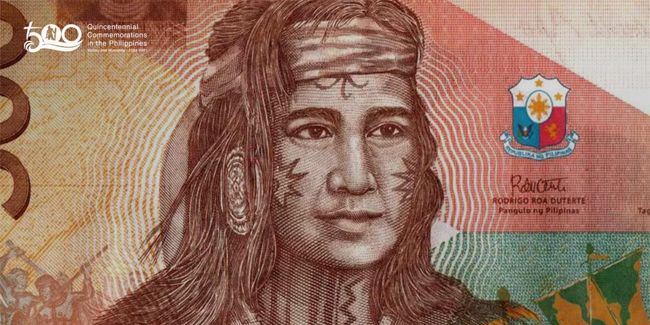Lapulapu or Lapu-Lapu?
LAPULAPU OR LAPU-LAPU — The National Quincentennial Committee (NQC) again clarified the name of the Mactan leader.

The National Quincentennial Committee had again stated that the name of the Mactan leader must be written without the hyphen in order to avoid confusion and to properly honor the historical figure as well.
According to an NQC release last Tuesday, the National Quincentennial Committee stated in a comprehensive plan submitted to President Rodrigo Duterte last 2019 that the NQC — with the consent of the National Historical Commission of the Philippines (NHCP) — will use “Lapulapu” instead of “Lapu-Lapu”.
The National Quincentennial Committee also mentioned that the name of the Mactan leader written on Antonio Pigafetta’s chronicle of the Magellan-Elcano expedition was “Çilapulapu”.
According to the National Quincentennial Committee, the “Çi” in the Mactan leader’s name was most likely the ancient honorific title “Si”.
The National Quincentennial Committee cited scholars in saying that “Çi” was an indigenized form of the Hindu title “Sri” which referred to a nobleman.
READ ALSO: Who Discovered The Philippines? Was It Really Ferdinand Magellan?
In addition, it also said that other historical figures — including Sicatuna of Bohol, Lakan Dula, and Rajah Siaui — also used the said prefix as shown in different works done in the early colonial period.
The National Quincentennial Committee also said that it had been consistent in using “Lapulapu” using the 1951 historical marker at the Liberty Shrine in Lapu-Lapu City, Cebu as reference.
Moreover, the agency said that it had to clarify the name of the Mactan leader because he would be “the central figure of the quincentennial”. The clarification on the name of the Mactan leader will also standardize the spelling for the proposed renaming of the Mactan-Cebu International Airport.
However, amidst the clarification, the NQC said that it would respect how the Mactan leader’s name was written and used in the past.
“What the NQC and the NHCP would like is for the Filipino people to first and foremost, stick to what is written in the historical documents,” NQC said in a statement.
For more news and updates, you may feel free to visit this site more often. You may also visit Newspapers.ph via our official Facebook page and YouTube channel.
